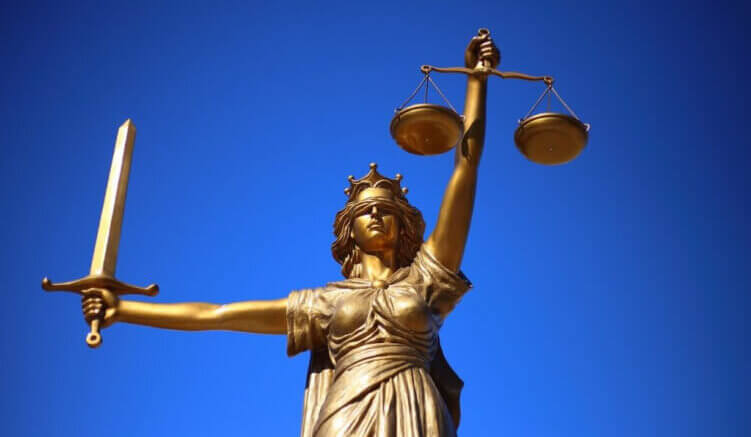There is justice, then there is injustice.
By J. Jeff Toler, for Shenandoah Christian Alliance
Well, what have we all learned about justice these days? If anything, you haven’t learned much—if you’re under the age of 30 without the obligatory racial constructs for reform and, of course, messaging the tragedy of injustice. Indeed, justice reform has long been the cause célèbre for so-called liberals. It was the rallying cry for campus riots of the seventies, along with ending the war in Viet Nam of course. So too, justice reform usually includes prison reform when the issue comes up.
Generally, Americans agree that the top criminal justice/prison reform priorities are in-prison job or educational training programs.
Prison Fellowship reports: practicing Christians believe that the top three criminal justice reform issues that must be addressed are:
- Expanding the availability of in-prison programs, such as education, job training, and substance abuse recovery: 29%
- Reducing barriers returning citizens face in accessing employment, affordable housing, and other social service supports: 29%
- Keeping youth under 18 out of adult prisons: 27%
Recently, a new idea in criminal justice reform was on full display as a contributing factor in the Thanksgiving Day Christmas parade massacre. This is because a career criminal, released on bond only days earlier, intentionally plowed through participants and onlookers alike, killing six people, and injuring dozens more.
Very recently, Rep. Rashida Tlaib, D-Mich., was interviewed by Axios reporter Jonathon Swan, about her sponsoring the Breathe Act, a delightful piece of legislation which calls for the Department of Justice and the Department of Health and Human Services to create a “roadmap for prison abolition,” including the “full decarceration of federal detention facilities within 10 years” and “a moratorium on all new federal prison, jail, immigrant and youth detention construction.”
There is a saying, “Mercy for the guilty is cruelty for the innocent.”
Of course that seems a bit of a stretch, even for someone of Tlaib’s political persuasion, as evidence, the following exchange:
“To what extent have you wrestled with releasing any potential downsides of releasing into society every single person who currently in a federal prison?” Swan asked the congresswoman.
“Yeah, I think that everyone’s like, ‘Oh my God, we’re going to just release everybody,’” Tlaib said. “That’s not what I’m—“
“That’s what the act says,” Swan fired back.
“Yeah, but did you see how many people are mentally ill that are in prison right now,” Tlaib argued.
“No, I know,” Swan said. “But the act you endorsed actually says release everyone in 10 years. … There are like, human traffickers, child sex [predators]. Do you mean that you don’t actually support that? Because you endorsed the bill.”
This astonishing and revelatory exchange reveals two things right off the bat. (1) Swan deserves kudos for real (and persistent) journalistic questioning—which is a real rarity in this day and age, and (2) Tlaib’s vacuous defense of what is an obviously horrible idea.
“I would have to look at every case individually and figure all of that out,” she added later. “Everyone in jail is not the same.”
No, they clearly are not. Most however, do belong there. There are arguments for the rehabilitative aspects of jail and prison. But by far the most important reason is, and ought to be, punishment. There is a saying, “Mercy for the guilty is cruelty for the innocent.” That is certainly a worldly concept that holds truth, but even that idea must go under the microscope of biblical understanding to fully appreciate. As recently as 2016, the issue was framed around the Trump administration’s law and order position—which at that time at least, reflected a majority of American’s own personal desire. Locking up bad people is, after all, something that typically engenders security within a population. Today, that has been exchanged for safety against a pandemic.
Allie Beth Stuckey, provided a brilliant exposition of the widely quoted, but often misinterpreted Verse, “He has told you, O man, what is good; and what does the Lord require of you but to do justice, and to love kindness, and to walk humbly with your God?” (Micah 6:8) to explain how God wants us to understand true justice.
This verse has become a favorite among progressive Christians for promoting their social justice agendas. If they were honest with themselves and their follow adherents, they would want to find another verse—or another Bible. In context, it will condemn them for their own hubris.
Micah was a prophet in the days of Jotham (742-735 BC), Ahaz (735-715 BC), and Hezekiah (715-686 BC). He was a contemporary of Isaiah. Micah lived in a time of international fear and uncertainty, and it was fueled by the increasing evil and injustice, particularly with King Ahaz, and the temple priests, who prophesied for money. So, here is the context: read the preceding seven verses. God will not let them off the hook because they are the priests, or God’s anointed kings. They are in sin, they should know it, and so they have no excuse. Does this sound familiar?
He has told us what is good, and what he requires of us.
We are expected to do justice; This is the mishpat—no passive act of observance, but an active verb. This is all but impossible if we confuse God’s justice with social justice. Bearing false witness, prosecuting innocent people—these are not justice.
We are to love kindness (or mercy). What’s kind or merciful about slandering someone, calling him a racist, or demanding he conforms to reckless government mandates?
We are to walk humbly with God. If we remain in righteous awe and fear, we will humbly obey Him, and it will be for our own good as well as our neighbors.
“Woe to him who builds his house without righteousness and his upper rooms without justice, Who uses his neighbor’s services without pay, And does not give him his wages” (Jeremiah 22:13).





